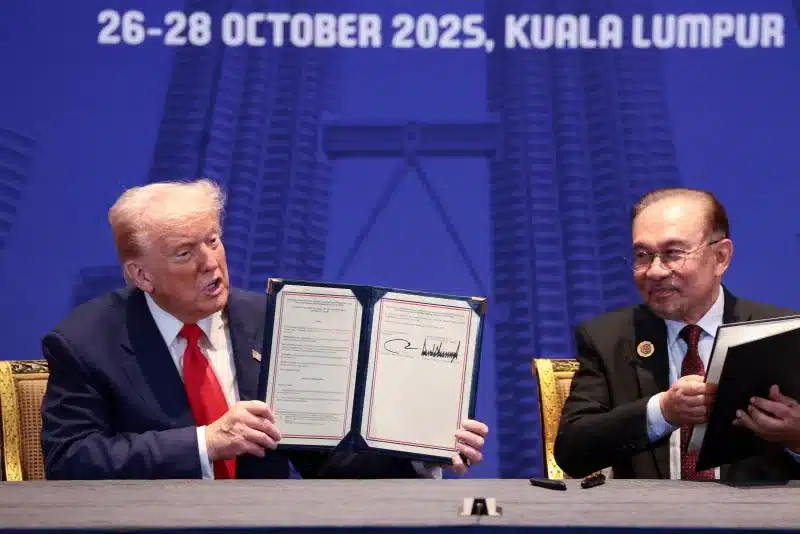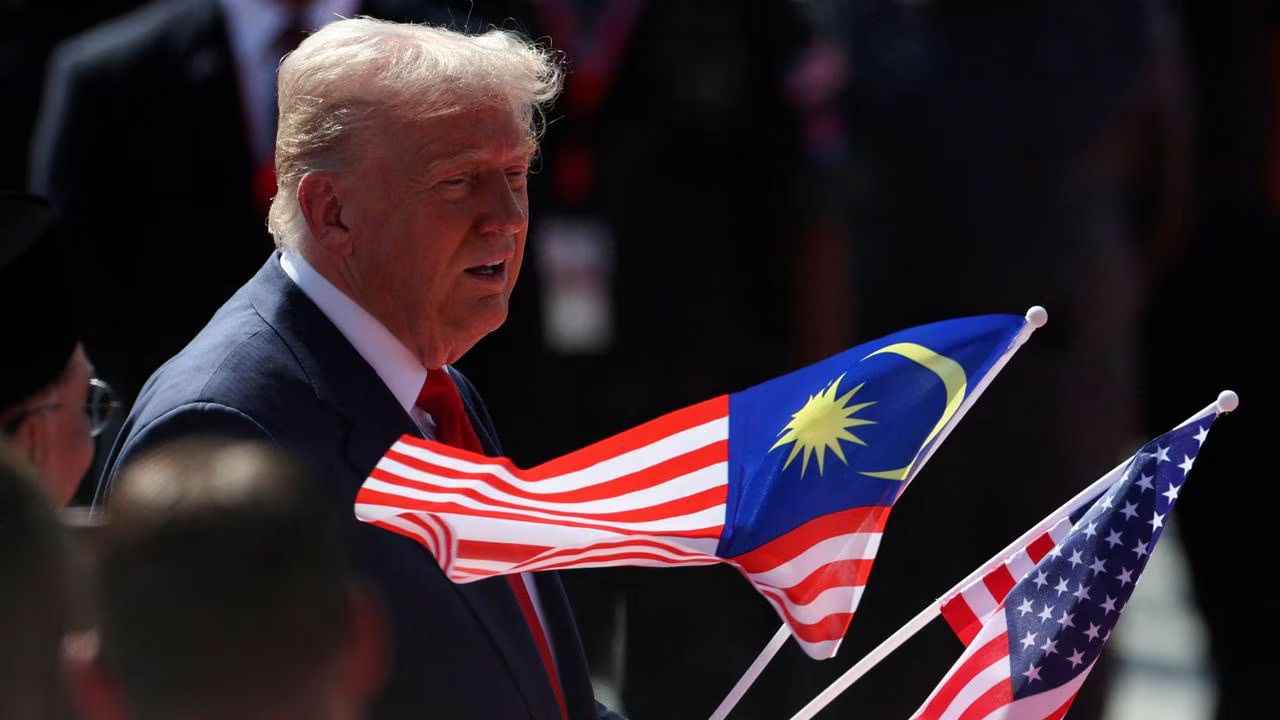Trump and Malaysia sign trade and minerals deals to counter China
Trump visit delivers key trade wins and signals regional economic push

Today on October 26, US President Donald Trump and Malaysian Prime Minister Anwar Ibrahim signed a trade agreement and a critical minerals pact in Kuala Lumpur, aimed at enhancing trade across Southeast Asia and countering China’s restrictions on rare earth access.
US Trade Representative Jamieson Greer noted that Malaysia would adjust its tariffs and non-tariff barriers, which is expected to boost trade significantly, particularly benefiting the agriculture, technology, and services sectors.
The critical minerals agreement seeks to ensure that trade and investment in rare earths remain as free and resilient as possible.
Anwar described the agreements as a ‘significant milestone,’ enhancing bilateral relations beyond trade. Dan Kritenbrink, a partner at the Asia Group and former US assistant secretary of state for East Asian and Pacific affairs, suggested that the Malaysian trade deal might encourage similar agreements in the region.
Earlier in the day, Trump participated in a signing ceremony between Thailand and Cambodia, addressing their recent border conflict. This brief clash, which resulted in numerous casualties, ceased following Trump’s threat to withdraw trade deals with both nations.
Additionally, Trump announced a broad trade agreement with Cambodia and a critical minerals pact with Thailand, although the latter remains largely aspirational.

This Asia visit, Trump’s first since returning to the White House, includes stops in Japan and South Korea, where a meeting with Chinese leader Xi Jinping is anticipated. Concurrently, US Treasury Secretary Scott Bessent engaged in talks with Chinese Vice Premier He Lifeng in Kuala Lumpur, in preparation for the leaders’ meeting.
The agreement with Malaysia aims to alleviate concerns about its exports to the US, following a 19% tariff imposed by Trump in August, down from a previously threatened 25% in July. Last year, trade between the US and Malaysia amounted to nearly US$87 billion, with a US goods trade deficit of US$25 billion, although there was a US$1.7 billion surplus in services.
For months, Malaysia has sought less restrictive US trade conditions, committing to crack down on advanced semiconductor smuggling to China.
Trade Minister Zafrul Aziz mentioned ongoing negotiations to exempt Malaysia from tariffs on semiconductor imports to the US, its third-largest market for chips.
Malaysia’s economy grew by 5.2% in the third quarter, surpassing expectations. However, the government projects growth to slow to between 4% and 4.5% next year, compared to a forecasted expansion of up to 4.8% in 2025, reported by Bangkok Post.
Latest Thailand News
Follow The Thaiger on Google News:


























